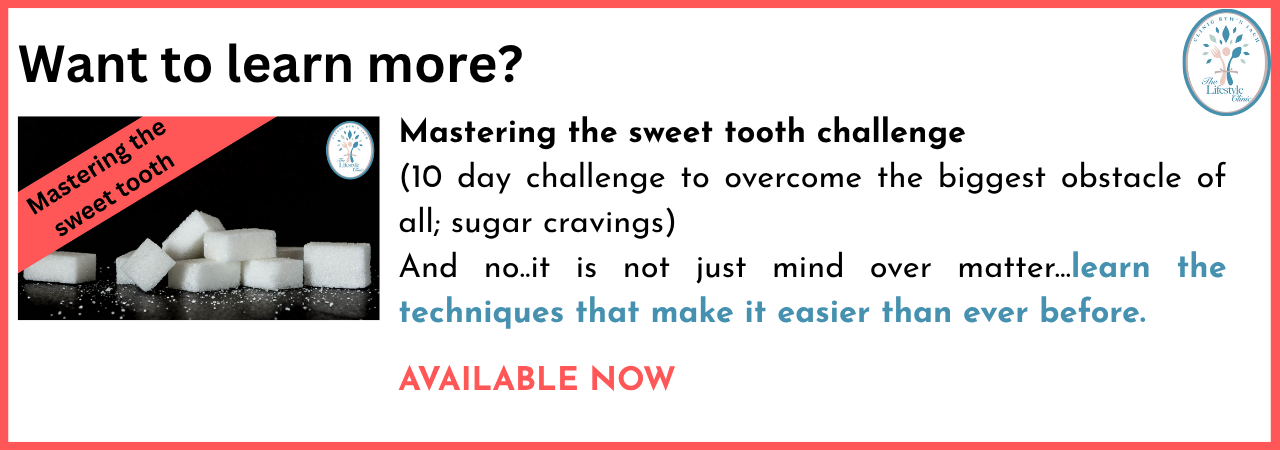
The Sugar Rollercoaster
Nov 14, 2023The term "sugar rollercoaster" refers to the fluctuating cycle of blood sugar levels that occurs after consuming foods high in sugar or refined carbohydrates. This rollercoaster ride can wreak havoc on your body's energy levels, mood, and overall well-being. So many of us are on the sugar rollercoaster without us even realising. Here we’ll look into the causes, the signs and the solution in more detail.
Understanding the Sugar Rollercoaster
When you consume sugary foods, your body rapidly breaks down the sugars into glucose, causing a rapid increase in blood sugar levels. As a result, the pancreas releases insulin, a hormone responsible for transporting glucose from the bloodstream into cells for energy or storage. This insulin response helps bring blood sugar levels back to normal.

The Sugar High: The initial spike in blood sugar after consuming sugary foods results in a temporary surge of energy and heightened mood. You may feel more alert and even experience a short-lived feeling of euphoria commonly known as the "sugar high."
The Sugar Crash: Unfortunately, the sugar high is followed by a steep drop in blood sugar levels. The insulin released to manage the sugar rush can cause an overshoot, leading to low blood sugar levels known as the "sugar crash." During this phase, you may experience fatigue, irritability, difficulty concentrating, and increased cravings for more sugary foods.
The Cycle of Cravings: The sugar crash triggers strong cravings for quick sources of energy, such as more sugary foods or refined carbohydrates. The cycle of highs and lows perpetuates itself as you continue to reach for sugary snacks to regain that lost energy, leading to a rollercoaster-like pattern.
Signs you might be on the rollercoaster
- Energy Fluctuations: The constant ups and downs in blood sugar levels disrupt your body's natural energy balance. You may experience bursts of energy followed by crashes, leaving you feeling drained and less productive throughout the day.
- Mood Swings: The rapid changes in blood sugar levels can affect neurotransmitters in the brain, leading to mood swings, anxiety, and irritability. It can also exacerbate symptoms of depression in some individuals.
- Difficulty losing weight: Frequent consumption of sugary foods can contribute to weight gain. The cycle of cravings and overeating can lead to an increased intake of calories, especially from unhealthy sources.
- Increased Risk of Chronic Conditions: Long-term consumption of high-sugar diets can contribute to insulin resistance, type 2 diabetes, and other metabolic disorders.
- Dental Health Issues: Sugary foods are notorious for promoting tooth decay and dental cavities, as harmful bacteria in the mouth thrive on sugar.

Breaking Free from the Sugar Rollercoaster
Escaping the sugar rollercoaster and achieving a more balanced relationship with sugar is possible with mindful eating and lifestyle changes. Here are some practical tips to help you break free:
- Reduce Sugary Foods: Minimize your intake of sugary treats, soft drinks, and processed snacks high in added sugars.
- Choose Whole Foods: Opt for whole, unprocessed foods that are rich in fiber, protein, and healthy fats. These foods are digested more slowly, leading to a steadier release of glucose into the bloodstream.
- Balance Your Meals: Decrease the amount of simple carbohydrates (bread, pasta, rice and potato) and increase proteins and fats in your meals to slow down the absorption of sugar and promote satiety.
- Read Labels: Be vigilant about reading food labels and avoid products with hidden sugars or high levels of refined carbohydrates. (see here for more detail on how to read labels)
- Practice Mindful Eating: Pay attention to your hunger cues and emotional triggers for eating. Mindful eating can help you make better food choices and reduce mindless snacking.
Conclusion
Understanding the sugar rollercoaster and its impact on your body is crucial for maintaining a healthy lifestyle.
It is essential to maintain balanced blood sugar levels to ensure that our body's systems function optimally. Consistently high blood sugar levels can lead to insulin resistance, obesity, and an increased risk of developing type 2 diabetes. Conversely, consistently low blood sugar levels can cause hypoglycemia, leading to symptoms like dizziness, confusion, and fainting. Awareness and stabilisation of the blood sugar levels is a priority within our programmes and the health benefits (and weight loss) that comes from it is well worth the effort.


